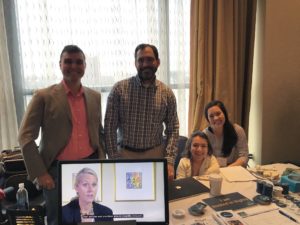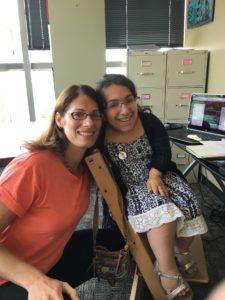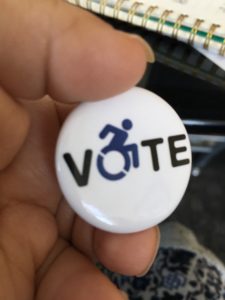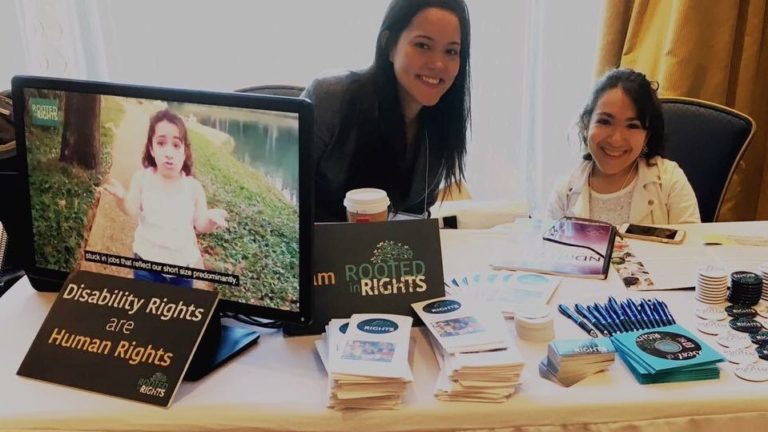
My path to Rooted in Rights was serendipitous. It was just a matter of being in the right place at the right time.
The beginning of my journey with them was when I applied for a summer program in 2015 called DukeEngage Seattle, through Duke University. DukeEngage Seattle was an eight week summer program where we work for a non-profit and learn about civic engagement. At the time, I was just starting to lead the student run organization, Duke Disability Alliance, and was becoming more involved in disability advocacy and disability rights. One of the organizations in DukeEngage Seattle was called Disability Rights Washington, a non-profit Protection and Advocacy group (P&A) that fights for the rights of people with disabilities in the state of Washington. I was excited when I applied and got accepted as an intern to their organization. I finally was going to get a chance to learn how to be a better advocate for myself and others with disabilities, and hopefully learn advocating skills to take back with me to Duke.

During that summer, I helped the legal team with a case that had been going on for about a year and a half that dealt with inaccessible curb cuts in Seattle. The importance of the case, which later turned into an ongoing lawsuit, was that people who use mobility devices sometimes can’t access public buildings because they cannot cross the street safely, thus making them go an extra 200 ft or so to find another way around. Another reason was a lot of the curb cuts were not inline with the crosswalk, causing people with mobility devices to travel into oncoming traffic, making them in danger of getting hit (this happened to me several times during my stay in Seattle that summer).
That year I went out in Downtown Seattle to fact check which curb cuts were inaccessible or missing, and which ones were fixed. I don’t remember the exact number, but I can tell you that a majority of the curb cuts I checked were not accessible. In addition, I helped the communications team, Rooted in Rights, create a video campaign related to the lawsuit, known as the #CrappyCurb Campaign. The campaign was to explain why curb cuts are important for people with disabilities and getting others to show their own “crappy curbs.” This video was the very first advocacy video I created with Rooted in Rights, and it was not my last.

After my summer internship, I got offered the opportunity to continue making videos with Rooted in Rights on issues that I was interested in. And then the following summer, in 2016, I received two grants from Duke – The RIPP/engage grant and the Human Rights Grant – to return back to Seattle to work with Rooted in Rights. The summer of 2016, I helped coordinate their new Storytellers Project, which provides a gateway for people with disabilities around the world an opportunity to create their own advocacy videos with us.
Currently, I have a part-time job with Rooted in Rights as their Storytellers Project Coordinator, where I find people from around the world to create videos with us, along with creating my own advocacy videos with them. I never imagined that I would meet other disability advocates like myself, or people who understood my perspective. But I have Rooted in Rights to thank for opening my eyes and allowing me to become more confident in what I am fighting for.

